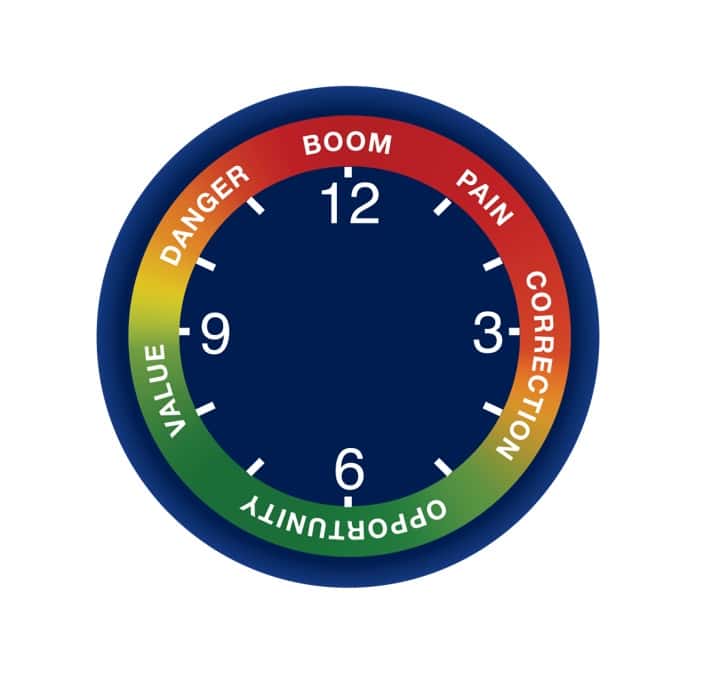Please fill out the details below to receive information on Blue Wealth Events
"*" indicates required fields

Over the next few weeks we’ll be making our way around our capital city property markets in a research road trip that will highlight our focus for 2016. Sounds exciting, doesn’t it? Next stop on our tour: Perth.
Mid last year the research team at Blue Wealth felt positively about the Perth property market prospects in 2016, with forecasts that the decline in prices would stabilise early in the year. However, increased risk surrounding the Chinese economy, particularly the stagnating manufacturing sector (surplus of 11 million homes has all but put a halt on growth in construction) and the subsequent decline in demand for iron ore, led to a contraction in the Western Australian economy, a loss of jobs and further declines in property values.
Here’s why Perth will remain in ‘correction’ on the property clock:
• Growth in sales volumes has been declining for the past 36 months, and negative since March 2014. Why is this important? Growth in sales volumes (i.e. demand) has a tendency to lead property price growth by between six and eighteen months
• Rents in Perth declined 2.2 per cent in 2015 – the second consecutive year of decline. We know capital growth and time create wealth, but it’s getting harder to hold a property with increasing holding costs. Yields declined from 6 per cent to 4.2 per cent
• Vacancy rates are at 4.1 per cent – four times what they were three years ago
• The Western Australian economy contracted 1.6 per cent between September 2014 and 2015
• Trend unemployment in Western Australia stands at 6.4 per cent, 47.8 per cent higher than the 4.3 per cent decade average
• Population growth in Western Australia in 2015 was half that of the decade average
The silver lining? The Perth market (economy/property) is contracting from unsustainable highs. The current state of the economy is poor by Perth standards but average from a national perspective. What we need to see is a market recalibration and a shift of sentiment to reflect the potential that a twenty-first century knowledge based economy brings.
